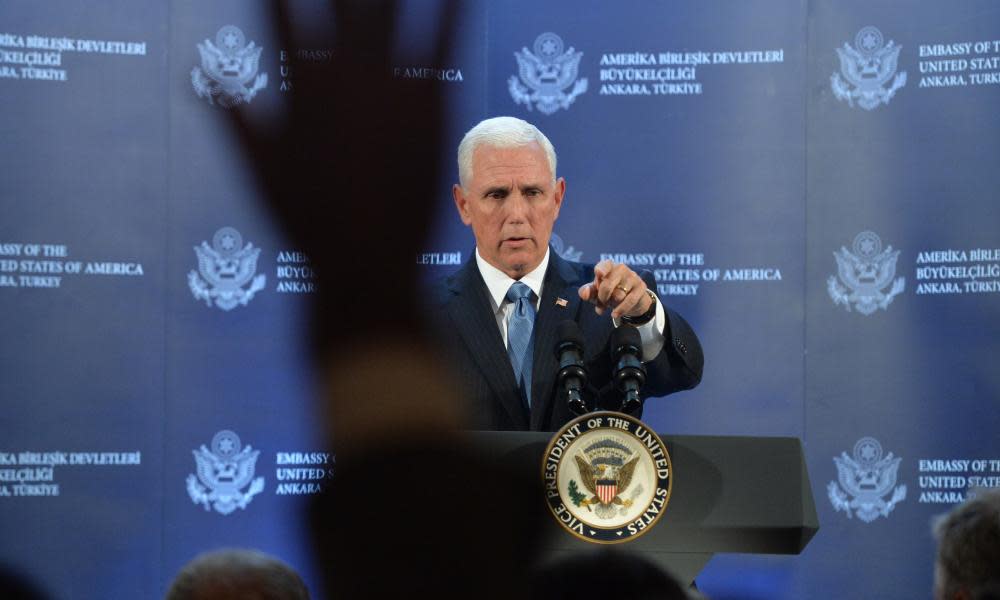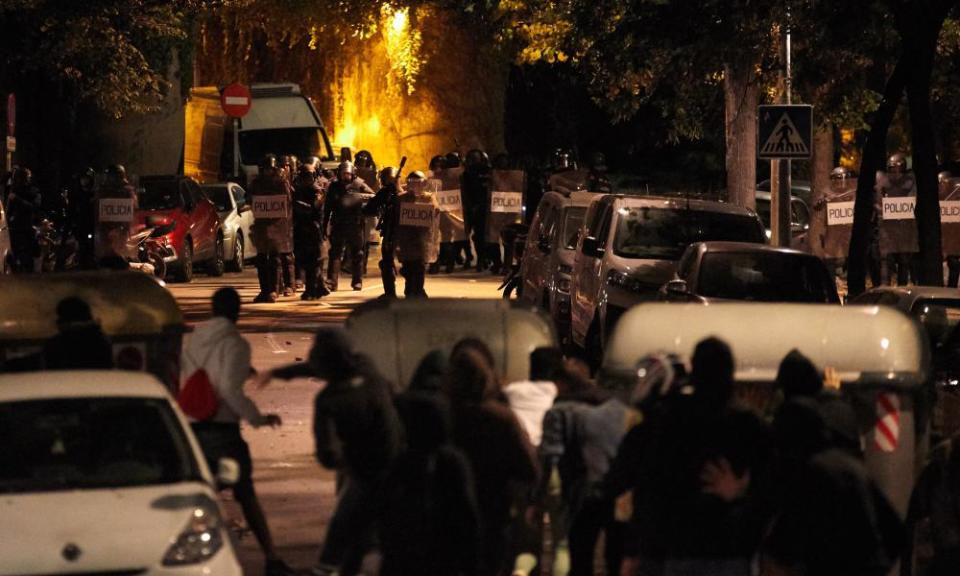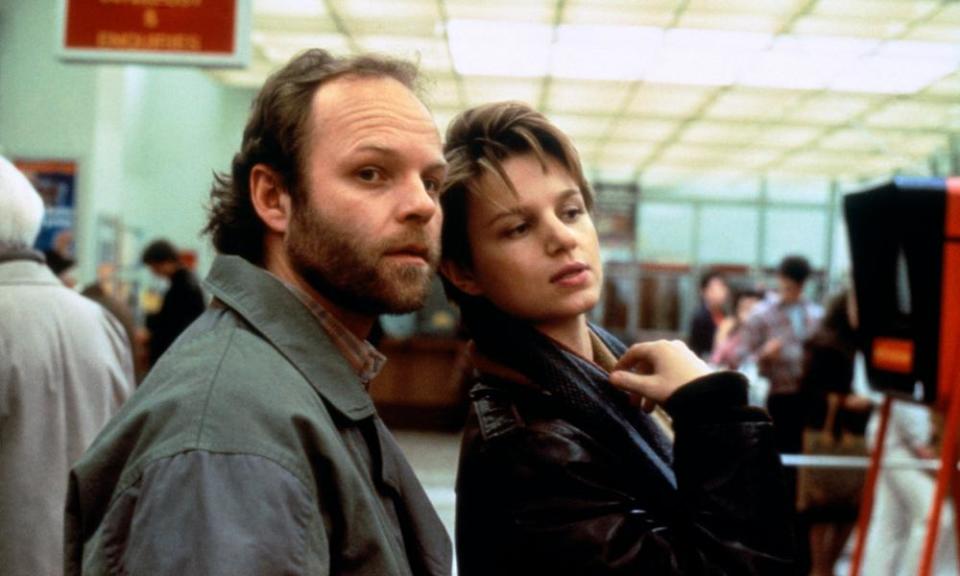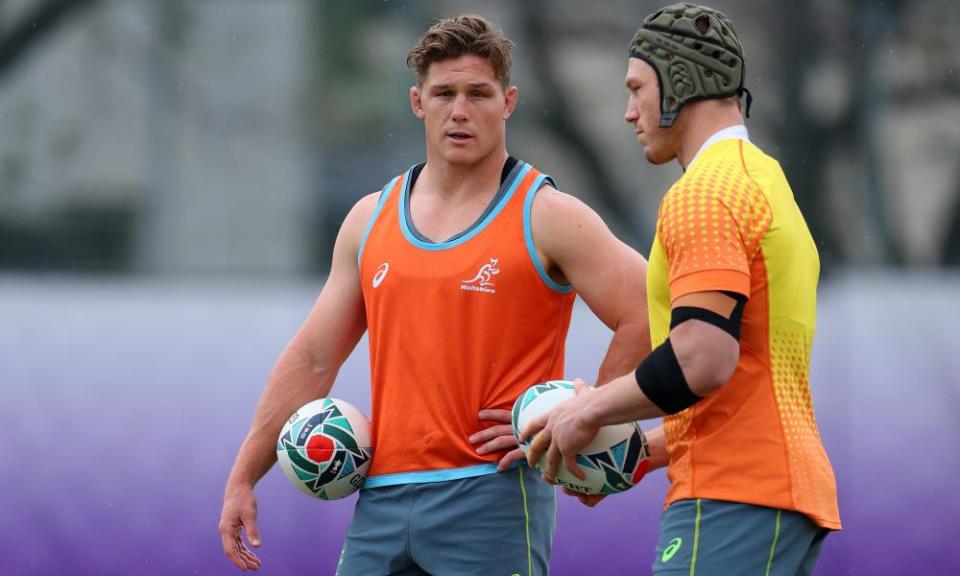Morning mail: Syria ceasefire, land clearing green light, Catalan violence

Good morning, this is Richard Parkin bringing you the main stories and must-reads on Friday 18 October.
Top stories
The US vice-president, Mike Pence, and the Turkish president, Recep Tayyip Erdoğan, have agreed a five-day ceasefire in northern Syria, allowing Kurdish troops to withdraw before a proposed permanent ceasefire. By suspending Ankara’s operation on Kurdish-led forces, it is expected significant bloodshed will be prevented, with Donald Trump tweeting: “Millions of lives will be saved.” The agreement will see Syrian defence forces pull back from Turkey’s proposed 32km “safe zone” along its border. In return, the US will not impose further economic sanctions on Turkey. It’s not clear if Kurdish officials were involved in negotiations, while Syria and Russia are yet to comment.
Farmers prosecuted for illegal land clearing have alleged a former NSW minister gave them tacit permission to do so, with the previous member for Barwon, Kevin Humphries, reportedly telling landowners the laws were about to change allowing them to clear native vegetation with impunity. Humphries had previously denied making the statements to the ABC. An area equivalent to the size of 100 Sydney central business districts was cleared in north-west NSW in 2017-18, a threefold increase since 2014-15.
Labor shares Asio’s assessment of an increased risk of rightwing extremist violence, with Anne Aly, a former academic who specialised in counter-terrorism, urging the federal government to commit more resources to the problem. “On Australian soil we have seen reports of escalating and brazen extremist white supremacist activity,” the member for Cowan warned, calling on counter-terrorism agencies to be given more material support to monitor and evaluate people’s public online behaviour. The home affairs minister, Peter Dutton, played down the concerns, telling reporters that Asio’s funding “goes up every year”.
Nearly three years after Raymond Noel Lindsay Thomas died during a police chase a coronial inquest will begin, to determine how it was the six-foot-eight-inch Aboriginal man affectionately known as “Big Raymond” came to be involved in a high-speed crash. With GPS data allegedly contradicting the police’s official report, the coroner will need to determine how and why the police pursuit occurred. The policy governing pursuit protocols was tightened in 2015 but expanded again in early 2017 after a driver killed five pedestrians in Melbourne’s Bourke Street mall.
World

The Catalan president has blamed “infiltrators” for violent protests across the region, after 80 people, including 46 police officers, were injured overnight as cars were set alight and molotov cocktails were thrown.
Incompatible statements out of Europe have sent a blow to Boris Johnson’s hopes of a 31 October Brexit, after the European Commission president Jean-Claude Junker’s “ruling out” of any further extension was contradicted by the European Council president, Donald Tusk.
A vocal critic of Hungary’s far-right President Viktor Orbán has been elected mayor of Budapest, vowing to cooperate with other mayors in a more pro-European fashion. Gergely Karácsony’s election is the first electoral setback for Orbán in more than a decade.
A sixth US official has given evidence at impeachment hearings against Donald Trump, with the ambassador to the EU, Gordon Sondland, claiming that the president instructed diplomats to work with Rudy Giuliani in investigating Joe Biden.
Angry rush-hour Tube commuters have clashed with Extinction Rebellion protesters, with passengers dragging one activist from the roof of a Jubilee line train. Police arrested eight people for the stunt, which has been criticised for damaging goodwill towards the movement.
Opinion and analysis

For more than six decades the films of Ken Loach have challenged norms and shone a searing light on social injustice. From his Palme d’Or winning epic The Wind That Shakes the Barley to his cinematographically beautiful “ultimate misfit story” Kes, Loach has directed films that invite the viewer to shift in their seat. But they’ve not all hit the mark, writes Andrew Pulver, who offers a definitive list of the veteran director’s prodigious output, from stinker to classic.
While boomers and millennials engage in decades of tedious generational warfare, Gen X are getting off the hook, writes Brigid Delaney. Once seen as grungy Nirvana-loving counter-culturals, the generation of Boris Johnson and Scott Morrison have flown under the radar. “This invisibility has so far meant that blame for the climate emergency has not been directed at Xers. But that is changing.” Neutered protest movements, cheap flights, big houses, and constant distraction may have seen Gen X fall asleep at the wheel, but Gen Z are picking up the baton with a new zeal.
Sport

Australia enter their World Cup quarter-final against England on Saturday having lost six straight contests between the two nations. That makes the Wallabies underdogs – which also makes them especially dangerous, writes Bret Harris.
Manchester United and Liverpool have enjoyed vastly contrasting fortunes in recent years, since the Glazer family saddled the Red Devils with half-a-billion debt. While John Henry’s prudent regime is reaping rewards, United have never looked further from silverware, writes David Conn.
Thinking time: celebrating protest pride
If you’ve looked at photographs from an Australian protest recently, you might have noticed young activists sporting #StopAdani earrings. They’re the creation of the Australian jeweller Kristy Dickinson, who makes expressive acrylic accessories under the name Haus of Dizzy.
“My friends always say Haus of Dizzy is just Kristy spewed up in earring form,” Dickinson tells Jo Walker. In addition to protest earrings and feel-good mantras, she also has an Indigenous pride range featuring First Nations flag hearts, “Faboriginal” hoops and “Deadly” necklaces. “I just want to give pride to my people,” Dickinson says. “But in a cool, shiny way.” The actor Miranda Tapsell is a fan. “Non-Indigenous people see me in my Haus of Dizzy earrings and they know where it’s at. Also, every Blak person stops you to say, ‘Is that Haus of Dizzy?’ It really gets us celebrating one another.”
Media roundup
Labor’s doomed 2019 federal election campaign has been savaged by the progressive women’s group Emily’s List for “missed opportunities” owing to “homogenous groupthink” from “Anglo men”, writes the Sydney Morning Herald. A 29-year-old Australian man has been killed during a home invasion in Texas, reports news.com.au, after the father of two and aspiring NFL player confronted intruders. And the Palaszczuk government has committed to a new $40m greyhound racing complex, says the Courier-Mail, in a project that’s expected to create 80 new full-time jobs.
Coming up
Official talks of a treaty that could deliver better housing and health outcomes for Aboriginal and Torres Strait Islander people in Queensland will take place in Cairns.
A public hearing of the aged care royal commission focused on the aged care workforce will take place in Melbourne.

 Yahoo News
Yahoo News 
